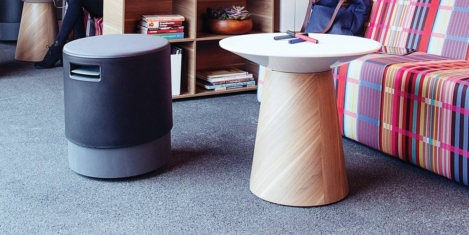January 18, 2024
British workers don’t want people to think of them as ambitious
 Ambition is a word now out of favour in the British workplace, according to Randstad’s latest global Workmonitor survey [registration] with workers in the UK less willing to describe themselves as ambitious than workers in other countries. The research, which surveyed 27,000 workers in 34 countries across Europe, Asia Pacific and the Americas, shows that while more than half (56 percent) of workers globally consider themselves to be ambitious, only 42 percent of workers in the UK do. Workers in other countries — including China (80 percent), Malaysia (73 percent), and India (90 percent) — are more likely to describe themselves as “having career ambition”. More →
Ambition is a word now out of favour in the British workplace, according to Randstad’s latest global Workmonitor survey [registration] with workers in the UK less willing to describe themselves as ambitious than workers in other countries. The research, which surveyed 27,000 workers in 34 countries across Europe, Asia Pacific and the Americas, shows that while more than half (56 percent) of workers globally consider themselves to be ambitious, only 42 percent of workers in the UK do. Workers in other countries — including China (80 percent), Malaysia (73 percent), and India (90 percent) — are more likely to describe themselves as “having career ambition”. More →








 A new poll claims that over one quarter (26 percent) of employees in the UK do not trust their CEO to be open and honest, while 24 percent do not trust their senior leadership to do the same. According to the survey of 2,000 employees in the UK from Personio, transparency and employer-employee communication are pivotal to a positive employee experience and trust in the workplace. The research suggests that feeling unheard by leadership could be fuelling employees’ distrust. Over a quarter (28 percent) of employees surveyed say that they are not given a chance to share feedback to leadership on their experiences. Meanwhile, less than half (46 percent) of employees feel that leadership in their organisation actually listens and acts on any feedback when given from staff.
A new poll claims that over one quarter (26 percent) of employees in the UK do not trust their CEO to be open and honest, while 24 percent do not trust their senior leadership to do the same. According to the survey of 2,000 employees in the UK from Personio, transparency and employer-employee communication are pivotal to a positive employee experience and trust in the workplace. The research suggests that feeling unheard by leadership could be fuelling employees’ distrust. Over a quarter (28 percent) of employees surveyed say that they are not given a chance to share feedback to leadership on their experiences. Meanwhile, less than half (46 percent) of employees feel that leadership in their organisation actually listens and acts on any feedback when given from staff. 
 Gossiping at work can have serious negative impacts on your career, according to new research by Durham University Business School and NEOMA Business School. Not only are gossipers frowned upon by other work colleagues, they also become socially excluded in the company, and can experience negative career-related impacts as a consequence of their storytelling.
Gossiping at work can have serious negative impacts on your career, according to new research by Durham University Business School and NEOMA Business School. Not only are gossipers frowned upon by other work colleagues, they also become socially excluded in the company, and can experience negative career-related impacts as a consequence of their storytelling. 























December 7, 2023
Has digital transformation led to an upsurge in workplace disinformation?
by Garry Paxinos • Comment, Technology